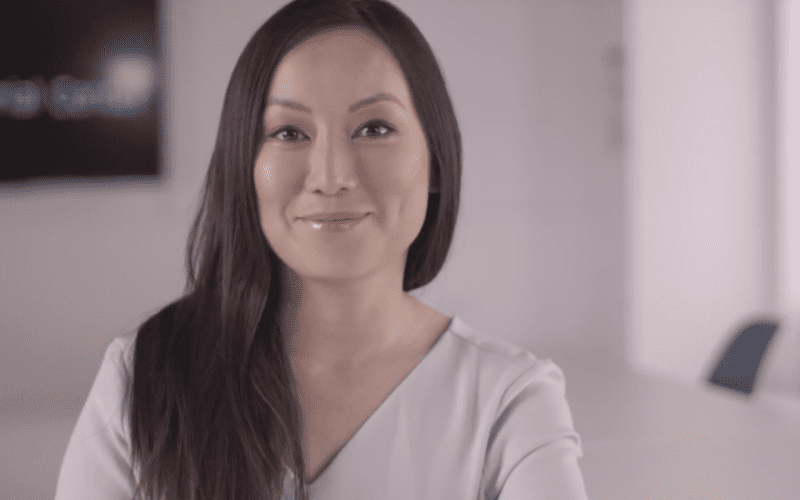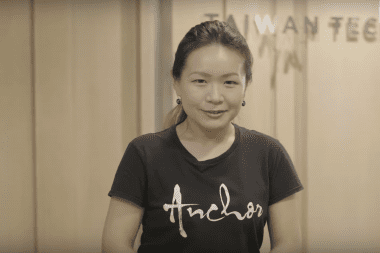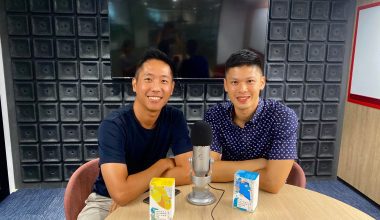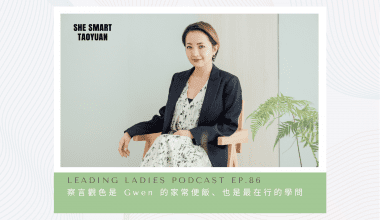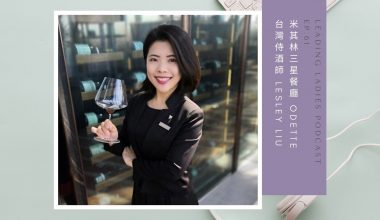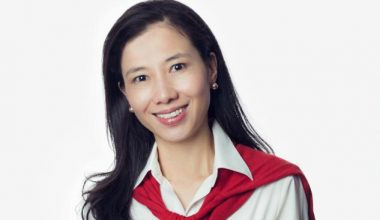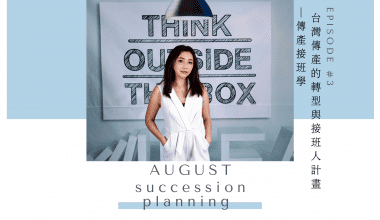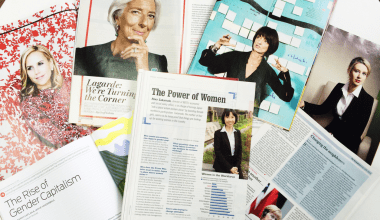【CAREhER ✕ Women Who Code Taipei】系列專訪 Ep.8
Hello and welcome to today’s episode of 20-20 Women Lead Podcast, I am the host of the episode Anna Liu.
In today’s podcast, we invite Ming Shu Zhao, the CEO and co-founder of PROVEN Skincare, a company that using A.I technology to analyze your skin and customize your personal skin products.
Ming has over a decade of experience in business strategy, investing and business development. She graduated from MBA Harvard Business School and has profound international working experience in the U.S., Austria, China, and India.
I had a great time talking with Ming and I can’t wait to share her experience and thinking as a woman founder in the technology industry. So let’s listen to it.
歡迎收聽 20-20 Women Lead Podcast,為了迎接 2020 年,每月 20 號 20 分鐘,讓我們一起認識一位科技女性的故事,學習他們如何創新、挑戰現況、勇於開創屬於自己的路。
Anna: Hi Ming. Nice to meet you.
Ming: Great to meet you, Anna.
Can you tell us about your product, service or technique?
I’m Ming, I’m the co-founder and CEO of PROVEN skincare. We create personalized skincare products that are based on more than forty-seven factors about a person. From their heritage, style of life, the level of pollution in their environment, the level of UV exposure they’re exposed, even including the hardness of the water to drink and wash their face with every day. We all of our products are made in the USA, they are made together with a leading Stanford dermatologist and based on the largest database in beauty in the world which we created in-house.
That’s really cool. So can you tell us about your motivation to start your business and also your motivation to keep going every day.
Yeah, it’s a good question. For me, I always loved skincare as a category, as a consumer, as someone who loves taking care of my skin. But I always felt like there was an industry that was behind in innovation and I couldn’t figure out why that is. But it was just very frustrating that you know, now I can use my phone to book a car to pick me up and AI is advancing humans in such a way.
However, skincare is a category which I love is stuck like 50 years behind it. Many of my friends and girlfriends felt the same way. So, for me, it felt like a simple time to bring this industry into the current times and the best way to do that is to make a change yourself, because the big beauty companies were going to do it without prompting.
Yeah, I know. So, PROVEN collects a range of information about skin information that users can utilize, what is one or two misconceptions that you found people have about beauty product and would love to convey through PROVEN?
So for us, we’ve built the largest database in beauty which we call the Skin Genome Project. It encompasses more than 20 million consumer testimonials and reviews as well as thousands of scientific journal articles and papers, but there is basically all the scientific studies there are about skin. And from this, we have learned some interesting things, such as the more expensive the skincare product, the better the ingredients or the better reviewed it is. Or just because we all have the same skin concerns, let’s say, it is anti-aging or hyperpigmentation that we should all be using the same products. Or that the biggest things affecting us are just what we want to resolve, in fact, the environment has more than 60 percent impact on what our skin needs on a day to day basis.
So I read your article about there are too many beauty products in women’s cabinets. Can you explain more about your thinking of the current beauty industry and does it affect you to design your company future products?
Yes, we absolutely believe that is true that people are made to believe they need all these things they don’t actually need, actually don’t serve them well. And it’s very bad for people’s skin because every product comes with a slew of ingredients and though many of them can be good. There are ingredients that when you put too many on your skin will have a negative effect.
Also, it’s really bad for the environment because of all the packaging, all the waste that is created. So many people, women, in particular, have what we call “one use wonders” in their cabinets which are products that they thought would be great for them. They try it and is not good but is too expensive for them to throw out.
So they are just sitting there because they feel bad and are reminding them of the money that they wasted, the time that they wasted, the hope that they lost. So our philosophy is certainly to both: be better for the environment, be better for people’s skin. And this is part of the philosophy of our dermatology advisor Dr. Homey who is the head of dermatology at Stanford University is that when you know exactly what your skin needs, when the products that the skin needs can be tailored and personalized to you, then we can give you exactly what your skin needs and nothing more.
So, why are our three-products regimen are all multi-functional products where one product takes a place of many. So you don’t have to have a cover full of unnecessary products and you can apply only the things that your skin needs and are helpful for your skin health.
Yeah, I think that is a really good concept for skincare, just like food can have a customized some healthy food for your body and skin is the same.
Absolutely.
So, how do you see PROVEN being used in different regions? How about Asia?
Yeah. You know Asia is definite at the top of my mind. Both because the co-founders both myself and Amy who is the computational physicist, both of us are Asian descent and we also know that skincare is very important for Asian women to be honest. Also, the level of environmental pollution is quite high and impacts people pretty heavily in the Greater Asia area. And so we want to bring our skincare products which we believe to be the most scientifically advanced to that area so that we can serve people in Asia as well.
I think Asians really worry about skin care. There are so many skincare products in there, so I will be a good opportunity for you to join the Asian market. In general, the beauty industry has more female entrepreneurs than the technology industry, and you and your co-founder like a combination of both.
Is there any challenge or any difference compared to your experience in the past?
Yeah. That’s a really good question. PROVEN, we would say that we’re actually a data and technology company that also happens to sell consumer products. Our Skin Genome Project, our database actually won us MIT AI technology of the Year award last year. So, as technology entrepreneurs and as female founders, we do feel that: there is sort of this sometimes disbelief, like “Oh you know your two female founders starting a skincare line” that makes sense. But you’re saying that “there are AI and technology involved” that must be you trying to use a “hot keyword” or trying to those words but you don’t know what they mean or where they’re not really applied.
So that is something we do have to come back. At the same time, there is an unfortunate truth that: a lot of companies even beauty companies do like to use the hot keywords of AI, data or personalization without actually having any backing and actually real usage for any of those elements. So some skepticism, I guess, is warranted because there is a lot of rampant misuse or overrepresentation of those elements.
Yeah, I see. Can you describe your leadership style?
You know that’s something I am learning on the go and I don’t really know how better to do that. I try to read books about great leaders, great entrepreneurs, how they built their companies. But the beginning part is always murky, right. It’s like once you have a successful company, you’re like “OK, so this is how I do it”. Then it starts to make sense but when you’re trying to make something work, it’s basically just…alright, let’s just try all these things, try to gather some like-minded people that you know who believe in you, and to try to cobble something together and we’re still in that phase.
So I would say my leadership style is one where I am tirelessly willing to experiment. I am willing to learn from the best and change course if necessary. And I am very keen on development. For us as a young company, we need to have a growth mindset so that we can get better and better. Same thing for myself as a leader, same thing for my team members, as they’re in whatever function they’re in so that we collectively are getting better every day at what we do.
Yeah, it’s really hard. Leadership is just keep learning and growing and is a really big challenge.
Absolutely. I don’t think anybody really figures it out, right? Because at the end of the day, it’s just people relations, you know, and it’s not like anybody gets to a level where they’re like I know exactly how to deal with people. Everybody is different. So the way that you treat and manage or led by somebody is, you know, as people change is always going to be changing. So it’s going to be a constant learning journey.
Absolutely. So if you can restart your business what would you change?
It’s a hard question to answer because I’ve learned a lot in this. And I think both Amy and I would say that we have actually become better leaders through all the lessons and the mistakes we have made. So I don’t know if it will be fair to say that we could just start over and you know, just do everything better. Let’s say if we started a similar company again in a couple of years. Well one huge advantage- a huge, huge advantage, is that we’ve now already built around us a strong circle of knowledge team members that we can call upon to basically do another, let’s say, a consumer or tech-enabled consumer company with us that will probably save years of time. So that is something that we’re very, very lucky to have.
So and also I know you are a mom now.
Yeah.
As a mom entrepreneur, what are some of the challenges you are facing and how do you overcome the challenge?
Yeah. I think that’s another one where it’s not something that you can just overcome and be done with. Having a company is a very all-consuming, kind of a choice where you want to spend all your time on this company or your mental capacity, all your energy, all your thought process etc.
And having a baby is the same. You know you want to spend all your energy investing in taking care of your human baby. So at times, these two things are conflicting because you want to do the best at both things. But the surprising thing for me as both a mom and a founder is there are actually things that are also quite complementary, such as sometimes the business can feel like, you know, it’s just never-ending battle. So actually having my daughter to be this constant source of joy is actually a very welcomed respite sometimes.
So that I can really hang out with her is like a meditation where I can let my entire mind to be free and to rest. And when I go back to my work, I’m refreshed and I can start at a more unfettered brain. So there are times where my daughter is like my secret weapon.
It’s like you can switch between your work and your mom, two different jobs, like a release from your pressure or something.
That’s right. Yes, something like that.
Oh, that’s really inspiring because I think some people like you, especially women who have a business and also have both occupations, they probably will feel like they could have double stress on their body, but I think your mind is really refreshing for me. So the next question is what is the most rewarding part of your entrepreneur journey?
Yeah. It’s really rewarding to serve our customers, I would say. We see our customer lists, some of our customers have been with us since the very beginning when we had betas and they’ve endured with us throughout our various beta trials to cut to market. Some of them write to us and tell us that we save their skin. And I’ve heard that before but I didn’t realize how wonderful it feels to learn that something that was in your head and then now through the hard work that you and people around you have put in, it is now improving people’s lives. That’s a very powerful, very empowering feeling.
So the last question is what takeaway message or advice that you would like to share with the audience, especially for women in STEM in Asia.
Yes, absolutely. I think the biggest piece of advice I would share and it’s kind of like a one and half advice since they’re kind of related to each other. At the stage in many of your lives, you are about to make some very important decisions that might impact the rest of your career, the rest of your working life possibly. So as you start to make those decisions as you get into the process of trying to decide among different options, etc. That I would advise you to understand what is a decision that you’re making out of fear verse what is a decision you’re making out of your true desire.
At the end of the day, your true desires the things that you always naturally inclined yourself too, whether that is art or whether that is sports, STEM or some esoteric element in computer science like my co-founder, she’s a computational physicist. So whatever might be just respect that, respect the elements in yourself that makes you who you are and try to not make decisions out of fear because sooner or later, it could be a short period of time, it could be a long period of time decisions that are made out of fear will catch up to you and you might regret them.
So, life is long and it’s entirely possible to enjoy what you do. It’s entirely possible to enjoy your work. And this is something that I didn’t realize before. I had my past on many different jobs that you would call prestigious. You know I was a consultant, I was in private equity, I went to Harvard Business School I’ve done a lot of the so-called prestigious things but I’ve never really truly enjoyed any of them and it wasn’t until I became an entrepreneur that even though there are a lot of difficulties, every day is difficult, every day is an uphill battle, every day is filled with anxiety. But nevertheless, I’ve never enjoyed myself as much as in this role as much as any role.
Despite all, you know the big names whatever I gathered because that was never right for me. And even when I was doing those jobs I knew that. But I didn’t at that time, I didn’t have the courage to make the change until later on, until recently. So if you know what you want to do, my advice is to find a way to make that happen for yourself.
Thank you for listening 20-20 Women Lead Podcast. I am your host Anna Liu. In today’s interview, Ming has shared her journey of being an entrepreneur and a leader. Also her thinking of current AI and beauty industries.
These precious experiences and advice inspire me a lot. I really respect the constantly learning and growing attitude Ming has. For the next month, we will invite General Motors Sr. Quality Assurance Program Lead, Lisa Li. If you would like to know more about the stories of women in the technology industry, don’t forget to listen to our podcast on the 20th of each month. See you next month.
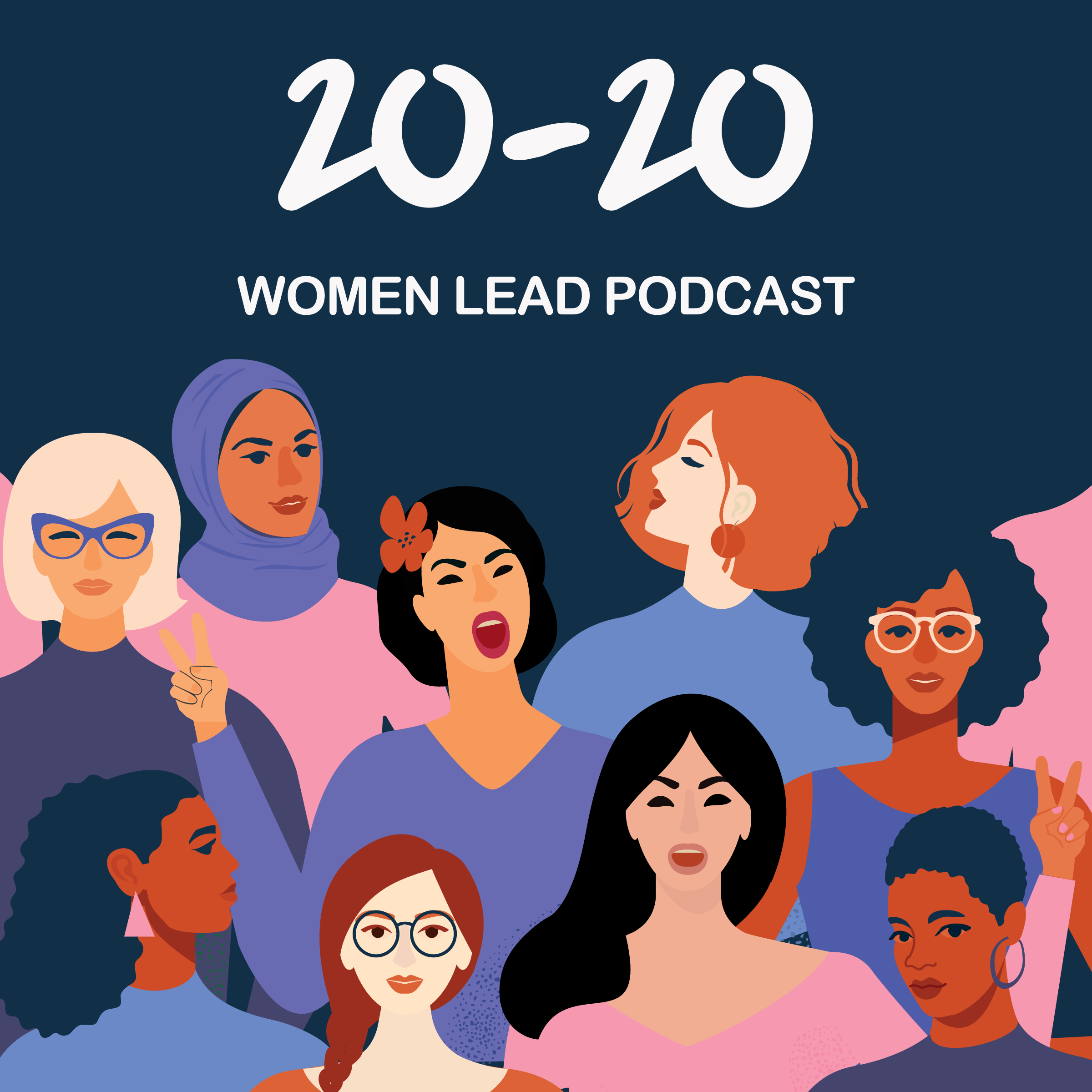

20-20 Women Lead Podcast 希望能鼓舞科技女性勇於突破,逐漸消彌「科技業」兩性主管的比率差異。 透過訪談,帶聽眾了解,正在/已經踏出與眾不同一步的科技女性所作的事與心路歷程。
在 2020 年前我們將訪問 10 位女性、製作成 10 集、20 分鐘的節目、在每月的 20 號發佈。希望能啟發科技女性,率先採用新的技術、設計嶄新的產品/服務、或創造新的模式。鼓勵女性勇敢踏出「與眾不同」的一步、接受挑戰。
